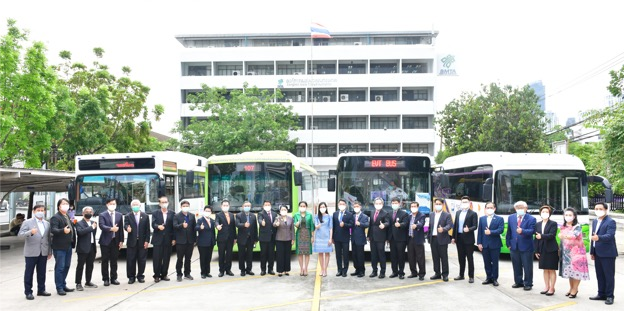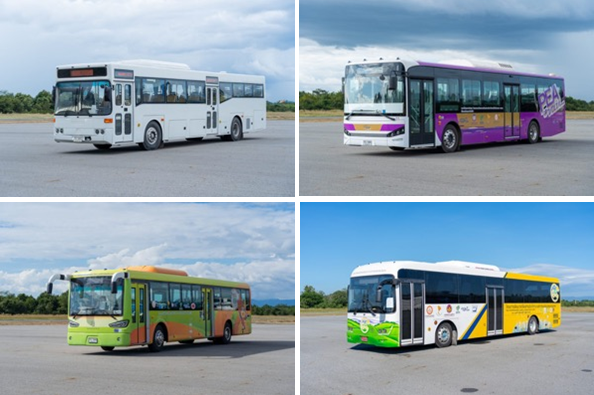On 31 May 2022, a press conference was held to introduce to the public four EV bus prototypes developed by the EV Bus Consortium – an academia-industry-government partnership setting out to implement the city transit E-buses project. The consortium consists of NSTDA, Bangkok Mass Transit Authority (BMTA), Electricity Generating Authority of Thailand (EGAT), Provincial Electricity Authority (PEA), Metropolitan Electricity Authority (MEA), Thai Industrial Standards Institute (TISI), Thailand Automotive Institute, Office of Transport and Traffic Policy and Planning, Department of Land Transport, King Mongkut's University of Technology North Bangkok, and Thai Auto-Parts Manufacturers Association (TAPMA). Sponsored by BMTA, EGAT, PEA and MEA and managed by NSTDA, the project aims to strengthen the capacity of Thai electric vehicle (EV) industry by providing grants to local enterprises to convert BMTA decommissioned internal combustion engine buses into electric buses.

All four prototypes meet the grant requirements, which are to utilize at least 40% domestically produced parts and cost 30%, or THB 7 million, less than imported EV buses. The four prototypes are:
- CNC EV BUS developed by Choknumchai Hi-tech Pressing. The bus was built with lightweight materials – making it more energy efficient - with 40% of the parts produced in Thailand.
- PTM EV BUS developed by Phanthong Machinery. This bus was built with 60% parts procured locally. The company collaborated with a local lithium-ion battery manufacturer.
- EVT EV BUS developed by Electric Vehicles Thailand. This bus was built with 40% parts procured locally. Key imported parts were sourced from qualified manufacturers to ensure top quality.
- SMT EV BUS developed by Sabai Motors (Thailand). The bus was developed based on the company’s expertise in EV drive system and completed 25,000-km road test.
These prototypes were presented to BMTA, MEA, PEA and EGAT for further performance assessment.

NSTDA researchers at MTEC and NECTEC have provided technical assistance and consultation to the consortium ranging from the prototype design, construction and performance evaluation, as well as the development of charging station prototype. The electric bus prototypes underwent a 3-month road test on actual bus routes and were tested under flooding conditions at a specially built test track at KMUTNB Prachinburi Campus. An EV bus cost-analysis study was performed by NSTDA in collaboration with Sirindhorn International Institute of Technology.
